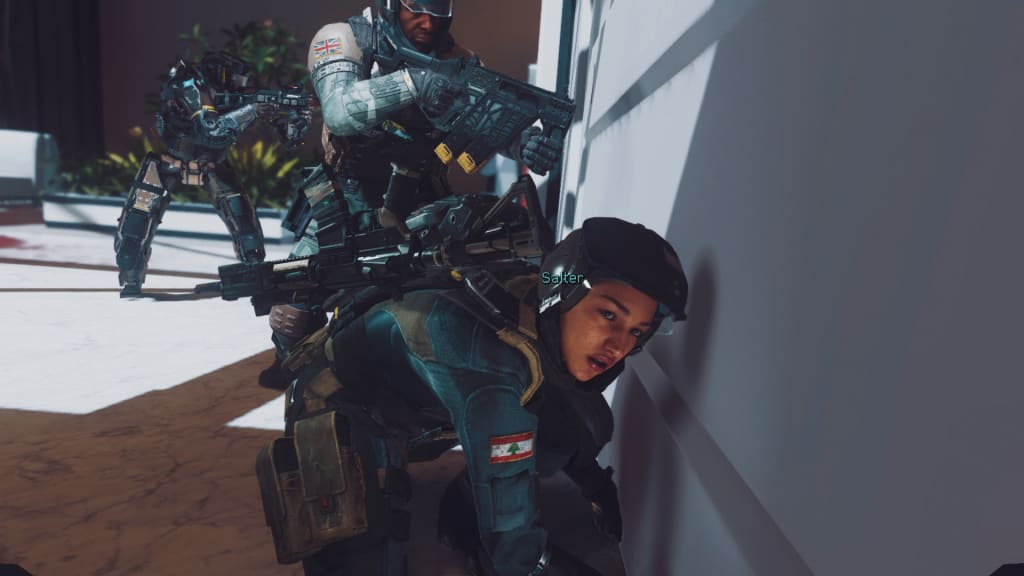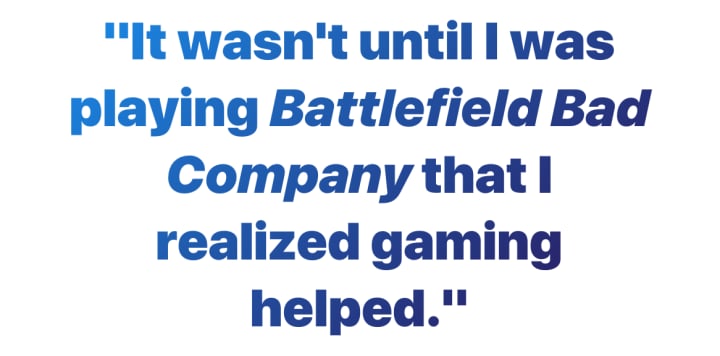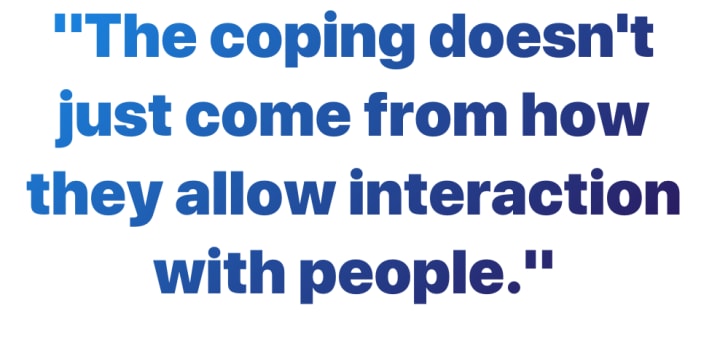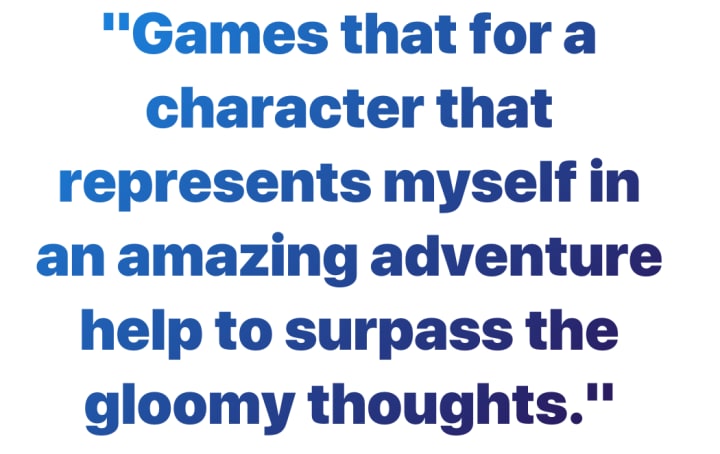Depression, Video Games, Bipolar Disorder — And A Few Smiles Later
When I was in my teens I discovered Gaming Isn't Just A Hobby — It's A Coping Mechanism.

Depression. It's a word that most of us recoil from or shrug off whenever we hear it mentioned. It's a state of mind that most of us respond to with a hasty "get over it." If only it were that simple for those of us who suffer. Depression is a mood disorder that doesn't vanish with a simple nudge to the ribs and a supplication from our peers to harden up.
For much of my life, depression has been a part of my life that I've grown accustomed to, that I've accepted can be crippling at times. I was diagnosed in my teens with bipolar disorder, among other things, and would often find myself scratching for a way to cope, much as a cat would scratch at the bathroom door — only this cat was already inside the bathroom. It's also something that I used to keep a secret. However, depression is something society should be aware that people suffer with, something that comes and goes as it pleases, like a shadow.

It wasn't until my diagnosis that I found myself searching for a way to combat the monster hiding underneath my skin. A monster that I wouldn't realize was there until I found the troublesome ebbs of depression washing over me, little by little.
For many years, I found ways to keep the monster at bay. I drew, I listened to music, I read books, I watched countless anime-based shows. However, it's not such a simple fix.
When I was in my teens I discovered Gaming Isn't Just A Hobby — It's A Coping Mechanism, an activity I would eventually grow to love, that I would adore, and I would continue adoring into my adulthood.

Gaming Isn't Just A Hobby — It's A Coping Mechanism
With each painful episode that would occur, I would experience crippling anxiety, constant crying, the want to sleep, and an encumbering need for isolation. It's all part of the bigger issue that would puzzle me every time the episode would pass. It never made sense and I could never figure out how to regulate these episodes — until one of my closest friends Chris pulled me into a few games of Battlefield Bad Company.

It was when I began playing Battlefield Bad Company that I realized gaming helped with my bipolar disorder. It wasn't necessarily the first time that playing video games helped. I had at times found myself hacking away on games such as Champions of Norrath for the PlayStation 2. The coping doesn't just come from how these games interact with the player, but with how they allow us to build relationships in a low-risk environment, one that doesn't drain us of energy while we suffering through a depressive episode.

[Courtesy: Nilbris]
Sometimes Games Are A Good Distraction
Depression affects one in five teens. Many of these teens won't be seeking help from a therapist. I know I didn't and I know that when I eventually did, my first visits were at the behest of my mother who wanted me to seek help. My therapist sourced a unique study that found that cognitive behavioral therapy could be applied to video games as a means of coping with mental health issues.

Games that allow not just for a character that represents myself in an amazing adventure, but a world that helps me overcome the greatest odds, help to surpass the gloomy and negative thoughts that arise through each bout of depression. The games that allow for a personal avatar, such as World of Warcraft, Final Fantasy XIV: Heavensward, and even games such as Fallout 4 and The Elder Scrolls Online have provided me with many a useful coping mechanism.
Just Because Gaming Helped Me, Doesn't Mean It Helps Everyone
Not every game helps me through these depressive spells, and games don't help me all the time. As a coping mechanism, sometimes I prefer to write over spending time in a virtual world. While playing video games has helped me through some troubled episodes, it's not something that is a viable option for everyone in a similar position to me. After all, everyone copes differently with mental health issues.
Gaming is a great outlet than can help with other issues aside from depression. It can help with anxiety, with Alzheimer's disease, and has even been known to help those with social anxiety disorder. Indeed, some video games have been utilized to teach kids how to socialize. These games help to engross and focus the disquieted brain, while offering up a few small laughs to the player.
Depression is a creature without a face, it's a monster that knows no limits and isn't scared to do what it needs to draw the energy out of us. What I do know is that there's always a way to overcome, whether we know it or not.
If you see me online, feel free to give me a shout, and even send on over a friend request.
About the Creator
Dustin Murphy
A video games journalist and Content Creator. He has been featured on sites such as AppTrigger and MoviePilot. He's the president and editor-in-chief of the independent news publisher Blast Away the Game Review.






Comments
There are no comments for this story
Be the first to respond and start the conversation.